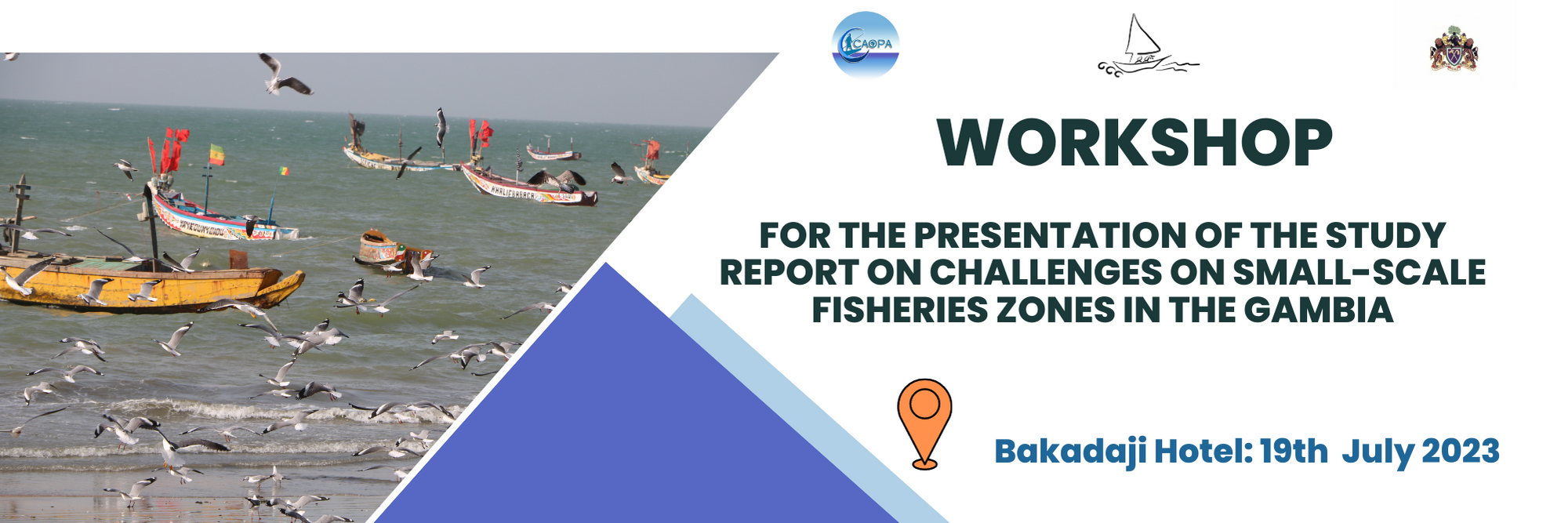CAOPA disseminates the study on the challenges facing the small-scale fishing zone in The Gambia

A study commissioned by the African Confederation of Professional Organizations of Artisanal Fisheries (CAOPA) with the support of the Coalition for Fair Fisheries Agreements (CFFA) and the Swedish Society for Nature Conservation (SSNC) highlights the challenges facing the small-scale fishing zone in The Gambia.
The study was carried out as part of the celebrations for the International Year of Artisanal Fisheries and Aquaculture (IYAFA 2022), with the aim of analyzing the regulations governing artisanal fishing in The Gambia, identifying gaps and proposing recommendations.
It was written by Diénaba Bèye Traoré, an international consultant specialized in fisheries law and governance. The methodology used by the consultant involved discussions with local fishermen and analysis of the relevant national, international and regional regulations.
Its importance lies in identifying gaps in current regulations and formulating recommendations to improve the situation of small-scale fishing in the Gambia.
To disseminate this work, CAOPA, with the support of CAPE, is organizing a workshop in Banjul on 19 July 2023 to present the results of the study.

Summary
The Gambia has a zone reserved for small-scale fishermen in the first 12 nautical miles, as well as in the estuary of the River Gambia and its tributaries. However, new rules were introduced in 2019, banning fishing in the first nautical mile from the low-water mark and allowing fishing by trawlers and semi-industrial vessels of less than 50 GRT within 7 nautical miles, provided that the catches are landed in The Gambia. Industrial vessels of less than 50 GRT are authorized to fish beyond 9 nautical miles.
The study highlights the international, regional and national regulations that apply to small-scale fishing in the Gambia. Although The Gambia has ratified several international conventions and agreements, there are still some gaps in national legislation.
Shortcomings and recommendations
The issues identified include a lack of surveillance, conflicts between small-scale fishermen and industrial players, unclear regulations on fishing zones and difficulties in registering small-scale fishing boats.
To remedy these issues, the report makes a number of recommendations. In particular, it advocates the urgent updating of the national legal framework on fishing, by adhering to the relevant international instruments and incorporating them into national legislation. It also recommends the creation of commissions to manage licenses and boarding, the translation of regulations into languages accessible to fishing communities, and the promotion of specific regulations on small-scale fishing at regional level.
For the President of CAOPA, Gaoussou Gueye, “it is essential to take appropriate measures to strengthen governance and promote sustainable small-scale fishing in order to guarantee the preservation of marine resources and support the livelihoods of fishing communities”.
Ultimately, the aim is to strengthen the governance of small-scale fishing in The Gambia, resolve conflicts, improve monitoring and control, and professionalize the trades associated with small-scale fishing to ensure sustainable management of marine resources and contribute to food security and poverty reduction in the country.
A series of studies on the challenges facing small-scale fishing zones have been commissioned in Sierra Leone, Ghana, Madagascar, Mauritania, the Republic of Guinea, Senegal and the Gambia.

